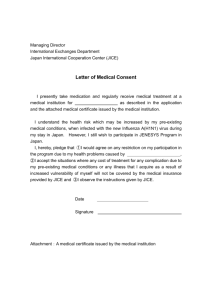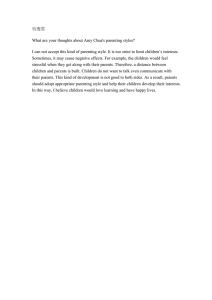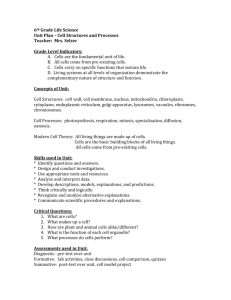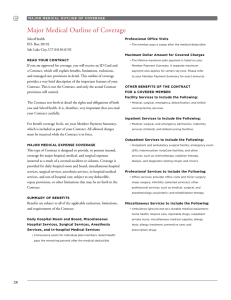VARYING FAMILY LAW ORDERS Despite having pre
advertisement
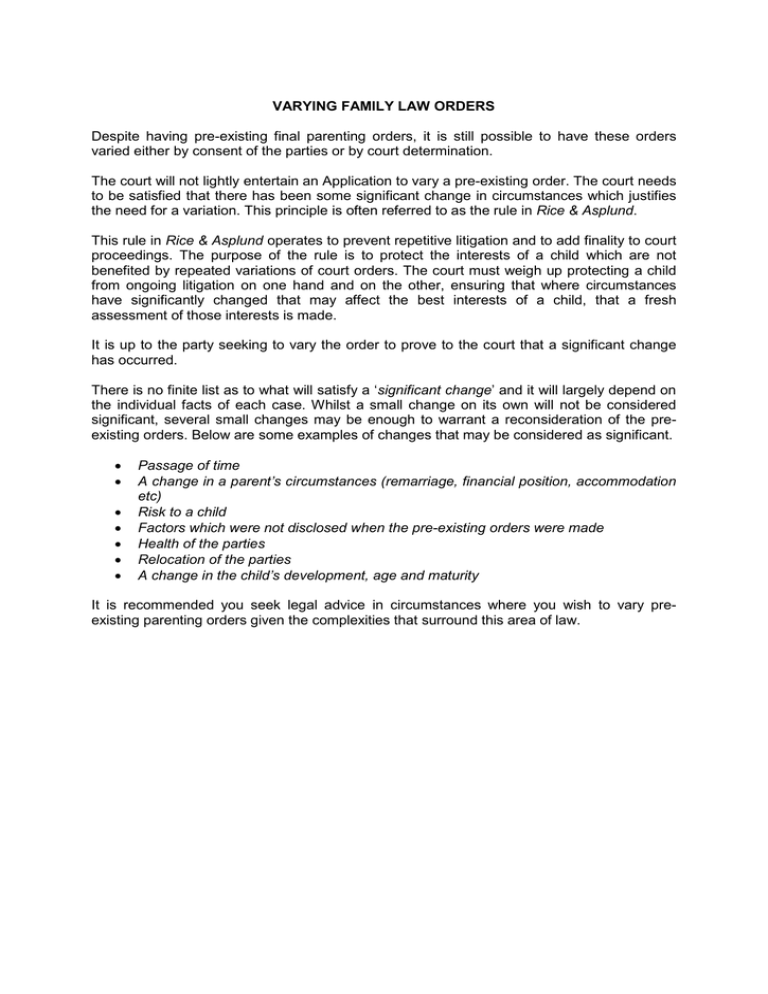
VARYING FAMILY LAW ORDERS Despite having pre-existing final parenting orders, it is still possible to have these orders varied either by consent of the parties or by court determination. The court will not lightly entertain an Application to vary a pre-existing order. The court needs to be satisfied that there has been some significant change in circumstances which justifies the need for a variation. This principle is often referred to as the rule in Rice & Asplund. This rule in Rice & Asplund operates to prevent repetitive litigation and to add finality to court proceedings. The purpose of the rule is to protect the interests of a child which are not benefited by repeated variations of court orders. The court must weigh up protecting a child from ongoing litigation on one hand and on the other, ensuring that where circumstances have significantly changed that may affect the best interests of a child, that a fresh assessment of those interests is made. It is up to the party seeking to vary the order to prove to the court that a significant change has occurred. There is no finite list as to what will satisfy a ‘significant change’ and it will largely depend on the individual facts of each case. Whilst a small change on its own will not be considered significant, several small changes may be enough to warrant a reconsideration of the preexisting orders. Below are some examples of changes that may be considered as significant. Passage of time A change in a parent’s circumstances (remarriage, financial position, accommodation etc) Risk to a child Factors which were not disclosed when the pre-existing orders were made Health of the parties Relocation of the parties A change in the child’s development, age and maturity It is recommended you seek legal advice in circumstances where you wish to vary preexisting parenting orders given the complexities that surround this area of law.
